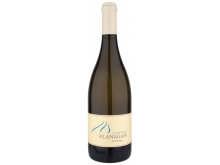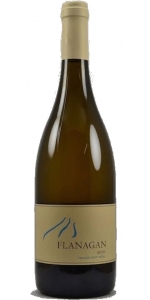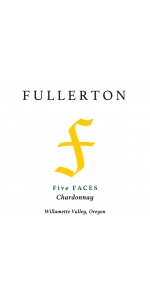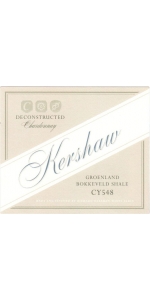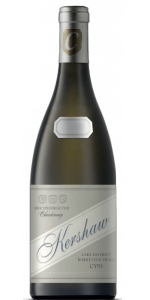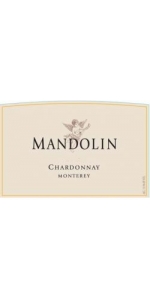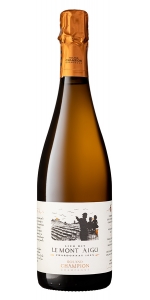Flanagan Chardonnay Bacigalupi 2017
| Country: | United States |
| Regions: | California California (Sonoma County) |
| Winery: | Flanagan Winery |
| Grape Type: | Chardonnay |
| Organic: | Yes |
| Vintage: | 2017 |
| Bottle Size: | 750 ml |
Flanagan Russian River Chardonnay is made from 100 percent Chardonnay.
Grapes for this wine are sourced from several top Russian River Chardonnay sites including Platt Vineyard, Ritchie Vineyard and Bacigalupi Vineyard.
A typical day in Russian River begins with cool fog that fades by mid-morning as the warm sun transforms the vineyard into a warm, welcoming place buzzing with bees. In the late afternoon the ocean air sweeps in from the west cooling the vineyard down. Soils of clay and volcanic rock, carved into rolling hills by the Russian River, are the bass line to the melody played by the sun, wind and fog.
Flanagan Chardonnay RRV has an expressive nose that is typical of the Wente Clone of Chardonnay. The palate has an elegant mélange of stone fruit and ripe citrus flavors supported by understated barrel notes. The key to the wine is the bright acidity that ties everything together. This is a great example of what top Russian River Chardonnay sites can produce when wine making is focused on balance.
Fullerton Five Faces Chardonnay is made from 100 percent Chardonnay.
Five FACES is an acronym for the Fullerton family – Filip, Alex, Caroline, Eric, and Susanne. The wines blend fruit from multiple vineyards in Willamette Valley, mainly in the north of the valley with one to the west in the Van Duzer Corridor. A full representation of the Willamee Valley’s soil types is on display with one volcanic vineyard, two loess (windblown) vineyards, and two sedimentary vineyards. The vineyards range in elevation from 550-700 feet.
Honeydew melon, japanese pear, apricot, honeysuckle, apple-blossom, nutmeg, brioche, and lemon curd. Melon is echoed on the palate with notes of lemon, tangerine, toasted almonds, and fennel. Lovely and integrated acidity balances the palate weight from 17 months on the lees.
17 months in 10% new French Oak
Paris with creamy dishes and cheeses. Chicken and Turkey.
Kershaw Chardonnay Deconstructed Groenland Shale CY548 is made from 100 percent Chardonnay.
The inspiration for this Chardonnay stems from my belief that the Elgin region has both a signature grape as well as particular terroirs within its demarcated boundary that reflect regional credentials. This Chardonnay was selected from a sub-region of Elgin from a specific vineyard and an individual clone (CY548).
Tasting Notes:
Sourced from the foothills of the Groenland Mountain in Northern Elgin this clone has been taken from Corton Charlemagne cuttings. It produces wines that have aromatics oscillating between lemon blossom, white flowers, petrichor and struck stone. Full in body they exude concentration with white stone fruit yet reinforced with an austere texture and robustness that makes for excellent aging potential. The Bokkeveld Shales adds structure and concentration to the flavor.
Vineyards:
Sourced from the foothills of the Groenland Mountain in Northern Elgin this clone has been taken from Corton Charlemagne cuttings.
Winemaking:
Grapes were hand-picked in the early autumnal mornings, placed into small lug baskets and tipped directly into a press before being gently whole-bunch pressed up to a maximum of 0.6 bar or until a low juice recovery of 580 liters per ton was obtained. The juice gravity-flowed directly to barrel (no pumps were used at all) without settling. The unclarified juice had no enzymes or yeast added to it and therefore underwent spontaneous fermentation until dry, with malolactic discouraged. The wine rested in barrel for 4 months prior to judicious sulfuring and a further 7 months’ maturation in barrel before racking and bottling.
Barrel: Selection: A small number of artisanal coopers are selected from mostly Burgundy, with only French oak was chosen. Up to 40% of the oak is new with the remainder split into 2nd and 3rd fill barrels of predominantly 228 litres.
Look at pairing this with textured fish, straightforward chicken dishes, pan-fried or grilled pork dishes, soft-rind cheeses, cream or creamy dishes be it with pasta or the aforementioned fish, chicken or pork, to allow the complexity of the wine to shine through. If using mustard, preferably use Dijon mustard as it uses verjus (soured grape juice) and not vinegar. Also look to delicate herbs (tarragon, dill, basil, parsley) rather than hard stalked herbs (rosemary, thyme, oregano, etc). Avoid smoked meats or fish as well as highly spiced dishes as this can overwhelm the wine and clash with the oak. I would try oysters; Lobster grilled or boiled but not thermidor as it is too rich; turbot, dover sole, sea bass, yellowtail with a shellfish sauce; fish pie; roasted free-range chicken with tarragon; roast loin of pork with garlic and ginger; truffle risotto; pasta in a clam sauce; slice of brie de meaux.
Review:
"Perfume of flowers, minerals and citrus zest. The palate is dense and focused, almost chewy with an opulent mandarin mid palate and long, savory finish. Matured in 50% new oak that is seamlessly integrated with the wine."
- International Wine Review (Richard Kershaw Lifts Elgin To New Heights, February 2019), 94 pts
Kershaw Chardonnay Deconstructed Lake District Bokkeveld Shale CY95 is made from 100 percent Chardonnay.
The inspiration for this Chardonnay stems from my belief that the Elgin region has both a signature grape as well as particular terroirs within its demarcated boundary that reflect regional credentials. This Chardonnay was selected from a sub-region of Elgin from a specific vineyard and an individual clone.
Tasting Notes: Sourced from a parcel in the Western part of Elgin the 95 clone is known for its excellent quality creating wines that are aromatic, fuller bodied and rich yet tightly structured, well–balanced with length of flavor, managing to show restraint and mouth-watering passivity with a great line through the palate and fruit veering towards white peach flesh and nectarine. On Bokkeveld Shales it brings amplified perfume on the nose and persistence and elegance to the palate.
Winemaking:
Grapes were hand-picked in the early autumnal mornings, placed into small lug baskets and tipped directly into a press before being gently whole-bunch pressed up to a maximum of 0.6 bar or until a low juice recovery of 580 liters per ton was obtained. The juice gravity-flowed directly to barrel (no pumps were used at all) without settling. The unclarified juice had no enzymes or yeast added to it and therefore underwent spontaneous fermentation until dry, with malolactic discouraged. The wine rested in barrel for 4 months prior to judicious sulfuring and a further 7 months’ maturation in barrel before racking and bottling.
Review:
"Minerals and a hint of flint on the nose. The expressive minerality of this wine also shows on the palate with complementary light stone fruit notes. Aged in 50% new 228L oak aging for 11 months."
- International Wine Review (Richard Kershaw Lifts Elgin To New Heights, February 2019), 95 pts
With its maritime influence, California's Monterey region has an extended growing season that yields wines with full flavor development and great acid balance.
Mandolin Chardonnay has a lush tropical fruit core, balanced by crisp acidity and nicely integrated oak.
The grapes for this Chardonnay were sourced from vineyards in the Santa Lucia Highlands AVA of Monterey County, where high winds, dry days, and bay fogs create a cool, but very long, growing season. These growing conditions are ideal for cool-climate grapes such as Chardonnay, and lead to full, forward fruit flavors and ideal acidity. Grapes were harvested at an ideal balance of sugar and acid, and the wine was fermented in 1-2 year-old French oak barrels. This wine did not undergo malo-lactic fermentation, thus preserving its bright acidity. Total Acidity: 0.70 pH: 3.45 Residual Sugar: 0.51 g/liter
Roland Champion Champagne Le Mont Aigu Chardonnay Brut Nature is made from 100% Chardonnay.
Grand Cru Chouilly from a single parcel called "Montaigu".
Aged in Oak barrels for 10 months on the fine lees and then, aged "sur lattes" for 3 years.
Brut Nature : no liqueur d'expedition (zero dosage)
This 100% oaked chardonnay will be perfect with salmon cooked in a parchment paper "en papillote", as well as roasted bone marrow.
Flanagan Chardonnay Bacigalupi is made from 100 percent Chardonnay.
Just south of the winery, Bacigalupi Vineyard straddles Westside Road in the upper reach of Russian River Valley. The 125 acre vineyard encompasses a range of terroir, from heavier valley floor soil along the Russian River to alluvial clay loam on the rolling hillsides. The fruit is sourced from a superb block of 25 year-old Wente Clone vines located on the western slope of the site. Bacigalupi was the source of the Chateau Montelena Chardonnay that, famously, beat the French wines at the "Judgement of Paris" in 1976. Bacigalupi Chardonnay has a nose of lemon zest and vanilla bean. The palate opens with red pear and Meyer lemon, and brioche toast and honey comb notes on the finish. Like well-made Chardonnay from great vineyards around the world this wine benefits from getting some air, will age for years, and is best when served chilled around 50 degrees. This wine will evolve in the bottle for many years to come. A terrific wine from one of Sonoma County's top sites for Chardonnay.
Review:
"Fresh and floral, this bold, layered wine tastes of green apple, lemon and lime, with a pleasing bite of tartness on the midpalate. The acidity is persistent and supportive of the fleshy full-bodied nature of the tropical richness the wine otherwise presents. - Virginie Boone"
- Wine Enthusiast (August 2019), 91 pts
Flanagan Winery:
Eric Flanagan is the founder and visionary behind the Flanagan wines and Flanagan brand.
Our journey into wine began with a love of wine and an appreciation of the places that create unique wines. In the early 1990’s, wine quality exploded higher in Sonoma and Napa. It was an exciting time to be a consumer of wines from Northern California and a great time to come and meet the vintners who were responsible for these inspiring new wines. We began in 1999 with the purchase of forty acres in Bennett Valley. In 2011, we acquired a small Russian River Valley vineyard, and, starting with the 2014 vintage, we have added vineyard designated wines from top vineyards in the Russian River Valley and the Sonoma Coast. Vineyard sources now include Ritchie Vineyard and Bacigalupi Vineyard for Chardonnay, and Sunchase and Sonoma Stage for Pinot Noir. In 2015, we will also add the iconic Platt Vineyard as a source for both Chardonnay and Pinot Noir. We believe that Platt may be the best vineyard in California for those varieties.
Sustainability at Flanagan:
There are a few marketing buzzwords that are prevelant in the wine industry right now that can be very confusing to the consumer. Terms like organic, biodynamic, sustainable... What exactly do those terms mean? To us, it's very simple. Sustainabliltiy means we farm our vineyards with long term mindset. We do everything we can to ensure that this land will be as healthy, or healthier than it was when we found it. We are in the process of having our vineyards certified as sustainable by the California Sustainable Winegrowers Alliance "CSWA".
Sonoma County is making a huge push to be the first farm community to be 100% certified sustainable. The CSWA program has 138 catagories for vineyard owners to self assess and then they support the process with an outside auditor. Sonoma County has hired a full time sustainablility coordinator and is making great progress towards our goal of have all of the vineyards in Sonoma County farmed sustainably.
Proprietor Eric Flanagan:
Eric came to the wine business from a love of wine. His family did not own a winery or a vineyard, and Eric did not grow up on a farm. Through his travels Eric became fascinated by how grapes of the same variety expressed themselves in different places. From New Zealand to Greece, Eric visited wine growing regions around the world, but in the late 90's he chose to create his vision in Sonoma. He started in 1999 with the purchase of 40 acres on the side of Bennett Mountain and expanded in 2011 with the purchase of their Russian River Valley site. Flanagan is now producing wines from several of the top vineyards in Sonoma County under their vineyard designate program. Flanagan is becoming known for making great wines from the best vineyards in Sonoma County.
Eric, Kit, and their 3 daughters (Riley, Lola, and Ruby) make their home at the Three Starrs Vineyard along with 3 dogs, 10 ducks, 4 Dwarf Nigerian goats, 2 geese, 1 donkey, and 1 mule (also named Ruby).
Winemaker Cabell Coursey:
Cabell joined Flanagan Vineyards as Winemaker in 2014. His obsession with winemaking began with a harvest in Burgundy while he was enjoying an undergraduate semester abroad. After finishing his B.S., Cabell spent a few vintages picking grapes and scrubbing floors in Burgundy, and then moved up to Oregon’s Willamette Valley. Following his time in Oregon, Cabell traveled to Christchurch, New Zealand, where earned degrees in Enology and Viticulture from Lincoln University. During his time in New Zealand Cabell focused on cool climate viticulture, which serves him very well in his current role at Flanagan. Cabell has also held winemaking positions at Alder Springs Vineyard, Dumol, and Kosta Browne.
Cabell’s approach to winemaking is to use his senses in conjunction with his knowledge in biology, chemistry, and farming.
Cabell describes his philosophy:
“Winemaking is the culmination of a vast number of decisions. Starting with the site, the farming practice, the response to weather conditions, the picking date, the tank and barrel programs, ferment protocols, and continuing through blending and bottling. It is the daily decisions, actions, and sometimes lack of action that unlocks a vineyard’s highest potential. This quest to reveal each vineyards unique personality, while dealing with the challenges inherent in farming, is what makes winemaking challenging, interesting, and highly rewarding. My goal is always the same, to deliver each vineyard’s best expression in each vintage and to make a wine where the last glass is better than the first.”
The vineyards represents 69 acres in total:
Graves vineyards is 13 acres, planted with Syrah (6 acres), Cabernet Sauvignon (4 acres) and Merlot (3 acres).
Platt vineyards is 34 acres, planted with Chardonnay (13 acres) and Pinot Noir (18 acres) and Riesling (1.4 acres)
and Gaps View is 22 acres, all planted with Pinot Noir.
- back
The 2021 Domaine Joseph Voillot Volnay Les Champans Premier Cru is from the domain’s largest premier cru holding, 4.2 acres whose vines date from 1934, 1971, and 1985. Champans is down-slope in the premier cru band, and its wine typically has more fruit and power than other Voillot Volnays.
Review:
‘The 2021 Volnay Les Champans Ter Cru has much more brightness and delineation than the Fremiets this year, with red cherries, wild strawberries and ust a touch of iodine and sous-bois. This is nicely focused. The palate is medium-bodied with sappy red fruit, fine structure, pliant tannins and a harmonious finish. Not the most complex Champans encountered from this address, yet it has class.
-Vinous 91-93 Points
The 2021 les Champans is also a simply stunning example of this fine premier cru vineyard. The beautifully elegant nose wafts from the glass in a blend of red and black plums, cherries, spit-roasted quail, a complex base of soil, woodsmoke, coffee bean and a deft touch of vanillin oak. On the palate the wine is pure, full-bodied and shows off superb depth at the core, great soil signature, ripe, fine-grained tannins and a long, nascently complex and very promising finish. This is a touch more reserved on the palate than the Fremiets and will take a bit longer to blossom, but it is going to be stellar. 2034-2085.
93+ pts- John Gilman, View from the Cellar #102
Cabrieres Chateauneuf du Pape Rouge L'Esprit is made from 50% Grenache, 15% Syrah, 15% Mourvèdre, 10% Cinsault and 10% remaining: Muscardin, Counoise, Picpoul, Terret noir, Vaccarèse, Clairette, Bourboulenc, Roussanne, Picardan.
The vineyard is situated on the high tablelands, which are characteristic of the northern area of Châteauneuf-du-Pape. The terrain consists mainly of alpine diluvium and chalky Miocenian soil, with large flint pebbles covering the surface. These pebbles conserve the heat of the day during the night, thus avoiding too much evaporation.
85-year-old vines. Aged 12 months in French oak. Intense ruby color, with a dominant nose of black fruits (blackcurrant and blackberry) evolving into smoke and grilled notes. Robust tannins on the palate with a long finish.
Pair with choice red meat, prime rib and game, or try with strong cheeses and chocolate dessert.

